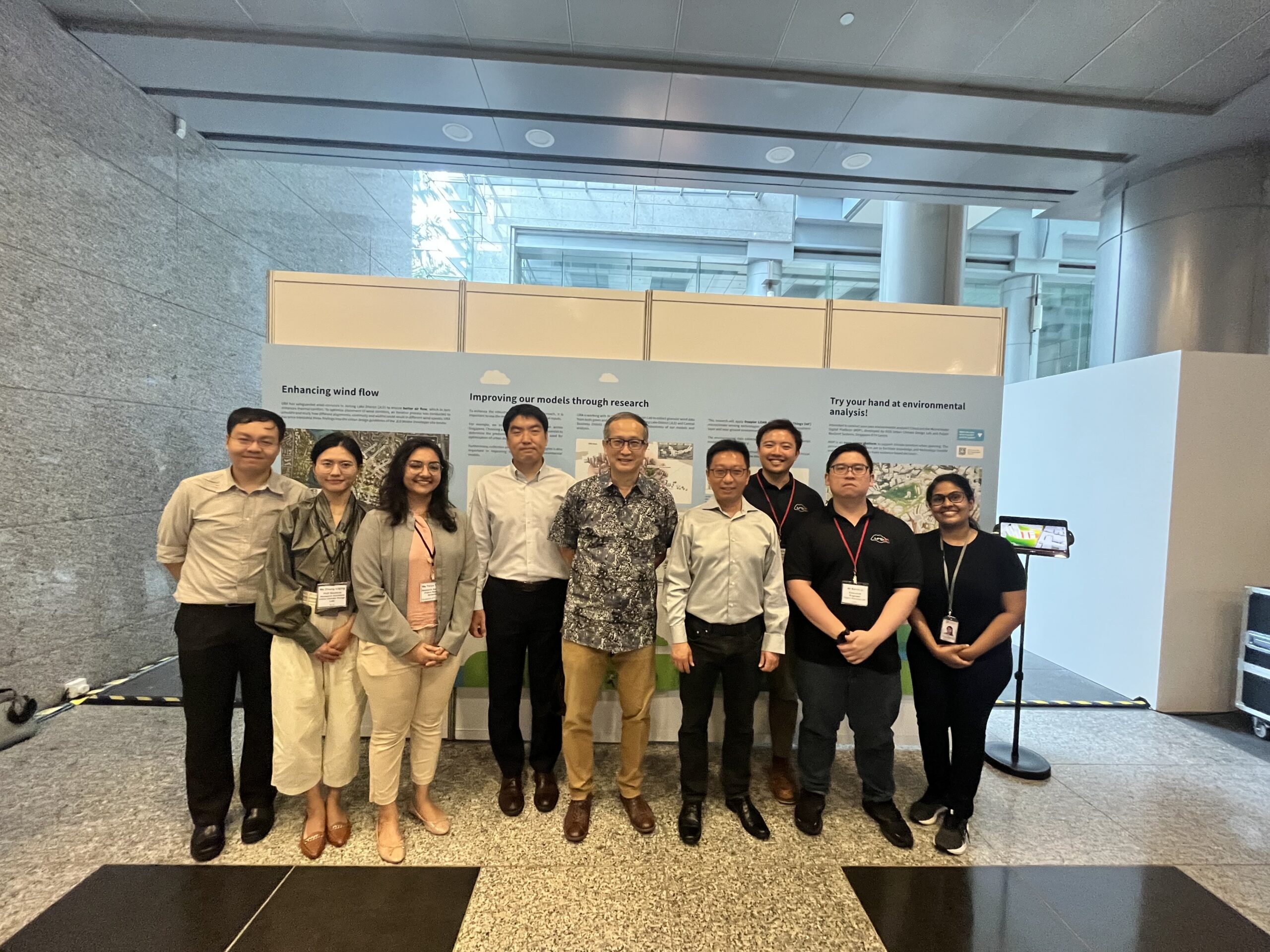HIGHLIGHTS
RESEARCH IMPACT & COLLABORATIONS
Keppel and NUS Collaborate on Sustainable Energy Solutions



A joint initiative between Keppel Corporation and NUS, involving projects spearheaded by faculty from CDE, will make use of the NUS campus as a living laboratory to create, test and scale low-carbon technologies and sustainability-related innovation. The multi-pronged Keppel-NUS Low Carbon Living Laboratory initiative, is aimed at enhancing the adoption of commercially viable and sustainable energy technologies, as well as boosting energy efficiency. Read more at: Keppel-NUS.

Shaping a Heat Resilient City
The inaugural project for the latest five-year strategic collaboration between URA and the Department of Architecture has started. The partnership focuses on applied research in urban planning and design, and on enabling knowledge exchange and collaborations between professionals and academics in this field.
This project explores the use of Doppler Wind LiDAR sensors at Jurong Lake District and the Central Business District to collect wind flow data for more robust environmental models. When such models are incorporated into upstream planning workflows, it can equip urban planners with the capability to design more thermally comfortable developments and districts in future.
The project is featured in the Urban Redevelopment Authority's tenth edition of the Urban Lab exhibition series. Titled ‘Shaping a Heat Resilient City’, the exhibition was officially launched by Ms. Indranee Rajah, Minister in the Prime Minister’s Office and Second Minister for Finance and National Development.
‘Shaping a Heat Resilient City’ will be exhibited at The URA Centre Atrium from 17 November 2023 to 1 March 2024. Admission is free.
For more about the exhibition and project see: URA-DOA


Taking the Lead on Neighbourhood Issues
To foster deeper and more sustained community action, the Municipal Services Office (MSO) commissioned two social research studies to understand residents’ attitudes towards municipal issues, including their willingness to be involved in improving their living environment.
One was a collaboration with the Centre for Sustainable Asian Cities, Department of Architecture. The aim was to look into ways to enhance the cultivation of positive social norms and values within Singapore’s high-rise, high-density housing environments.
As part of the two-year research collaboration, the Toa Payoh East Constituency Office worked with a research team led by Associate Professor Cho Im Sik to pilot the Dragon Heart Community Platform, and a community-led project to address the improper disposal of bulky waste in their neighbourhood.
The study aimed to address the root behavioural causes of municipal dis-amenities, taking into consideration increasingly limited enforcement and government resources in the long-run.
Experiences and results from the study were recently shared at a dialogue. The study showed that residents can be empowered to participate when provided with appropriate resources and support and that they are more inclined to join rather than lead neighbourhood projects.
The study also highlighted the need to build a pool of community facilitators to help navigate funding and bureaucratic procedures for community-led projects. These facilitators would play a key role in driving sustained engagement of the residents through clear and regular communication, such as providing proper closure and impact evaluation of projects.
Read more about the project at: MSO-CSAC Study
Other news about the project:
- https://www.straitstimes.com/singapore/new-initiative-gets-toa-payoh-residents-involved-in-solving-issues-like-bulky-waste-dumping
- https://cde.nus.edu.sg/news-detail/dragon-carts-lead-charge-to-empower-community-solutions/
- https://news.nus.edu.sg/INTEGRATED-COMMUNITY-PLATFORM-TO-TACKLE-MUNICIPAL-ISSUES-PILOTED-IN-TOA-PAYOH-EAST/

‘FUNction Device’ Offers Hope to Muscular Dystrophy Patients
A new assistive device jointly developed by researchers at CDE could offer significant strides towards improving the lives of individuals battling muscular dystrophy.
Named the "FUNction Device" it aims to empower those affected by the condition to use smartphones and tablets, even in the advanced stages of the disease.
The device has been jointly developed by a team from CDE and the NUS Institute for Health Innovation & Technology (iHealthtech), led by Professor Lim Chwee Teck (Biomedical Engineering and Director of iHealthtech). Funding was provided by the Enabling Lives Initiative Grant from SG Enable.
Read more at: FUNction

Battle of the Batteries
Professor Antonio H. Castro Neto (Department of Materials Science and Engineering, Department of Electrical and Computer Engineering and Director of the NUS Centre for Advanced 2D Materials (CA2DM) ) and Associate Professor Qing Wang (Department of Materials Science and Engineering) spoke recently to the CNA Insight documentary series, giving their views on global advances in battery development and the contenders emerging in this highly competitive sector.
Watch here: https://www.channelnewsasia.com/watch/insight-2023-2024/battle-batteries-3873741

DesignSingapore Council Feature: Hans Tan
From his early years as a DesignSingapore Scholar to his current roles as a practitioner, teacher, and curator of design, Hans Tan has spent his career deciphering, developing, and sharing an insightful perspective on what design can be and do. Now, as the Curatorial Director of the Design Education Summit 2023, he is sharing the message that creativity is in everyone – and design is one of the best ways to apply it.
“We know through a lot of research that making meaning is extremely important to the next generation, above many, many other things like job stability or higher pay,” Tan explains. “The ability to believe in yourself and feel that you can make change is an extremely important aspect of design. You can even apply it to your life!”
Read more at: Hans Tan Feature
More on his work at: https://hanstan.net/








